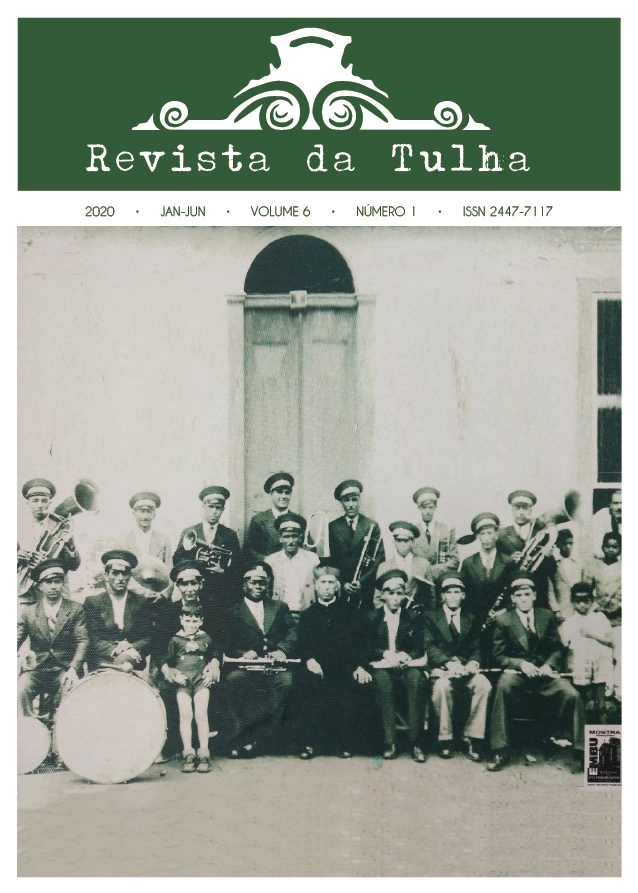Singer and microphone singer
a conceptual discussion on music, popular music and the culture industry
DOI:
https://doi.org/10.11606/issn.2447-7117.rt.2020.170647Keywords:
Singing, Microphone Singing, Art, Popular Art, Culture IndustryAbstract
In the article there is a conceptual study on singing. Because of the culture industry, the ancient song came to be called lyrical song. This expression, however, does not make sense. The corner of the culture industry was sovereign in the dictatorship of public opinion. But it is a type of recent history of about a century. The article proposes that, in a historical musicological perspective, it would be more appropriate to call singing in art and popular art simply singing, whereas singing in the microphone singing culture industry.
Downloads
References
ADORNO, Theodor W.; HORKHEIMER, Max. Kulturindustrie – Aufklärung als Massenbetrug. In: Dialektik der Aufklärung. Frankfurt [am Main]: Fischer, 1969 [1ª ed. 1947], p.128-176.
ANDRADE, Mário de. Prefácio sobre Chostacovich. In: SEROFF, V. Dmitri Shostakovich. Rio de Janeiro: O Cruzeiro, 1945. p. 9-33.
[BARBOSA, Domingos Caldas]. Viola de Lereno: Collecção de suas Cantigas, offerecidas aos seus amigos. Volume I. Lisboa: Nunesiana, 1798.
=[BARBOSA, Domingos Caldas]. Viola de Lereno: Collecção de suas Cantigas, offerecidas aos seus amigos. Volume II. Lisboa: Lacerdina, 1826.
BENJAMIN, Walter. Das Kunstwerk im Zeitalter seiner technischen Reproduzierbarkeit. Frankfurt am Main: Suhrkamp, 1963 [1ª ed. traduzida para o francês, 1935, 1ª ed. alemã 1936].
CAMARGO, Cristina Maria Emboaba da Costa Julião de; RICCIARDI, Rubens Russomanno. Será que aquilo deu nisso? – a deteriorização do canto e da composição coral no Brasil desde a inserção de arranjos de canções da indústria da cultura. Trama Interdisciplinar, São Paulo, v. 2, n. 2, p. 156-166, 2011.
COSTA, Alexandre [da Silva]. Heráclito – fragmentos contextualizados. Rio de Janeiro: Difel, 2002.
DUARTE, Rodrigo. Indústria cultural hoje. In: DURÃO, Fabio Akcelrud Durão; ZUIN, Antônio; VAZ, Alexandre Fernandez. A indústria cultural hoje. São Paulo: Boitempo, 2008, p.97-110.
ECO, Umberto. Apocalípticos e integrados. Tradução de Pérola de Carvalho. 6ª ed. São Paulo: Perspectiva, 2001 [1ª ed. italiana 1964].
FERREIRA, A. B. de H. Novo dicionário Aurélio da língua portuguesa. 2 ª ed. Rio de Janeiro: Nova Fronteira, 1986.
FREIRE, Paulo. Pedagogia do oprimido. 17ª ed. Rio de Janeiro: Paz e Terra, 1987 [1ª ed. 1970].
HERDER, Johann Gottfried. Auszug aus einem Briefwechsel über Ossian und die Lieder alter Völker. In: Von Deutscher Art und Kunst - Einige fliegende Blätter. Hamburg: Bode, 1773.
HERDER, Johann Gottfried. In: Deutsches Museum. Bd. II, Stück 11, novembro de 1777.
HERDER, Johann Gottfried. Stimmen der Völker in Liedern. Tübingen: Cotta, 1807.
HERDER, Johann Gottfried. Ueber die neuere Deutsche Litteratur. Riga: Hartknoch, 1767.
HERDER, Johann Gottfried. Volkslieder. Leipzig: Weygand, 1778-1779.
JAMESON, Fredric. Modernidade singular – ensaio sobre a ontologia do presente. Tradução de Roberto Franco Valente. Rio de Janeiro: Civilização Brasileira, 2005 [1ª ed. estadunidense 2002].
KONDER, Leandro. A questão da ideologia. São Paulo: Companhia das Letras, 2002.
São Paulo: Escala, 2007. (Coleção Grande obras do pensamento universal, 86).
MARX, Karl. Gesammelte Volkslieder. Bonn: Dietz, 2018 [manuscritos de 1839].
ORTEGA Y GASSET, José. Em torno a Galileu – esquema das crises. Tradução de Luiz Felipe Alves Esteves. Pretópolis: Vozes, 1989 [curso proferido em castelhano, 1933].
ORTIZ, Renato. Cultura brasileira e identidade nacional. São Paulo: Brasiliense, 2ª ed. 1986 [1ª ed. 1985].
RICCIARDI, Rubens Russomanno. A música na madrugada do destino – uma poética musical para o século XXI. In: RICCIARDI, Rubens Russomanno; ZAMPRONHA, Edson. Quatro ensaios sobre música e filosofia. Ribeirão Preto: Coruja, 2013, p.13-78.
RICCIARDI, Rubens Russomanno. Desdobramentos culturalistas dos manifestos modernistas à luz de uma teoria crítica. In: Trama Interdisciplinar - Volume 7, Nº 2. São Paulo: Mackenzie, maio-agosto 2016, p. 183-206.
RICCIARDI, Rubens Russomanno. Indústria da cultura, esnobismo e vanguarda: três obstáculos hoje à composição musical. In: Revista da Tulha – Volume 1, nº 2. Ribeirão Preto: USP, 2015, p.361-405.
Downloads
Published
Issue
Section
License
Authors retain copyright and grant the journal the right to first publication, with the work licensed under the Creative Commons Attribution License CC-BY-NC:
This work is licensed under a Creative Commons Attribution 4.0 International License.



